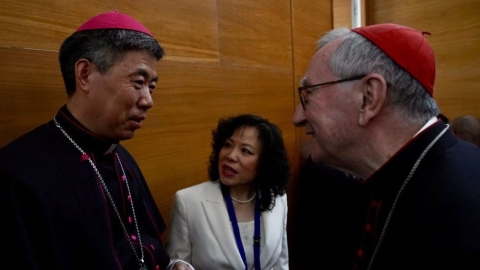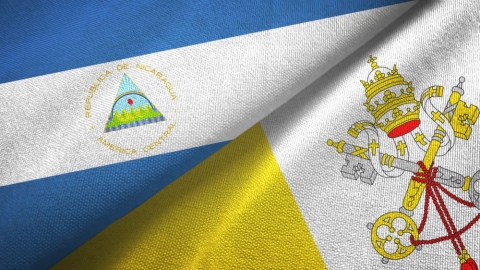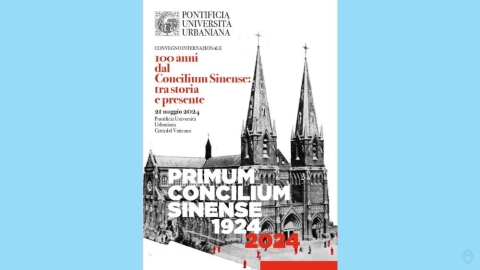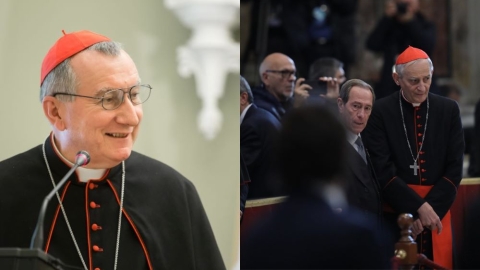Pope Francis Facing the Risky Challenge of Modernity

By wanting to include the Church in a synodal process which must enshrine a progressive vision while taking into account modern developments, is Francis embarking on a perilous path? Or, to put it another way, will the reformism of the current pontificate lead to progress for the Church? The question arises today in Catholic and conservative intellectual circles.
From World Youth Day in Lisbon which took place at the beginning of August 2023, recall the term “todos” which the sovereign pontiff repeated several times to the million and a half young people who came to surround him: “There is room for everyone in the Church.”
Some saw it as a way of preparing minds for the next phase of the Synod on Synodality which will decide on the structural and governance reforms planned to “adapt” the Barque of Peter to the turmoil of the years to come. Because for Pope Francis, the Church must agree with the world and not the world with the Church, as was the case in previous centuries.
Interviewed by Atlantico on August 15, 2023, sociologist Michel Maffesoli questions the “doubly dangerous” reformist temptation of the current pontificate: “On the one hand it completes the movement of secularization, of desacralization which leads to the end of the Catholic religion and on the other hand, paradoxically, this attempt to adapt the Church to the world is quite simply anachronistic. In fact, the current world does not correspond at all to what he imagines: an old man still lost in the revolutionary and Marxist climate of his youth.”
From this “anachronism” would arise a mistake, that of a pope, who will not see that “the vast majority of Catholics seek in the Church an institution which is precisely an alternative to a secularist, political, and rationalist modernism.”
By choosing to imprint a reformist dynamic in the synodal process, the pope knows that he will please a certain number of Catholics in Europe, as well as the major media, but this strategy has a downside, as Bertrand Vergely, essayist and associate professor of philosophy teaching at the Saint-Serge Institute of Orthodox Theology, says in his analysis:
“When it begins to speak a progressive language, on a political level, the Church survives. On a religious level, it is a disaster, as she begins to speak a language that is no longer her own. Let us know, Christ came to announce the kingdom of heaven and not socialism.”
Furthermore, the temptation of modernity is not new in Christianity. Other confessions have already been confronted with it. Protestantism, to name just one, “has undoubtedly followed the path adaptating the Church to the world quite similar to what Pope Francis is attempting. The reformed principals envisaged including democratic (synodal) governance, the ordination of women, the blessing of same-sex marriage, etc., already exist in a large number of Protestant churches,” notes Michel Maffesoli.
And the consequences have been disastrous for the Protestant nebula which has lost many of its faithful. Only the most radical currents – evangelical Christians – have held firm in the wave of secularization: “All secularization, all politicization, and all adaptation of the Church to the world makes it lose its sacred character. The sacred, let us not forget, is separated from the profane, it is even what defines it, it is a world forbidden to profane interference, which inspires fear and trembling,” specifies Maffesoli.
And that is where the Sovereign Pontiff sees in Catholic Tradition an ideology, as he recently declared during the return flight from his apostolic trip to Mongolia. Maffesoli reverses the terms of the syllogism: “Progressivism is an ideology, the ideology of progress. … The great totalitarianisms of the 20th century, Communism and Nazism, were the paradigms of this progressivism.”
For him, when “the Church, instead of speaking of the divine world, of the afterlife, intends to participate in the erection of paradise on Earth, she quickly abandons all links to the sacred, she becomes totally secularized. This was the lot of many progressive priests and religious who quickly “defrocked,” as well as many priests and religious who in Latin America espoused the revolutionary cause and who quickly arrived at the theology of the death of God and then to total secularization.”
And Bertrand Vergely warns: “Are tradition and conservation disappearing? With the worst form of progress taking power, we find ourselves, as during the cultural revolution under Mao, no longer with progress, but with violence.” These are lines that the synod participants would benefit from reading.
(Source : Atlantico – FSSPX.Actualités)
Illustration : Mariordo (Mario Roberto Durán Ortiz), CC BY-SA 4.0, via Wikimedia Commons





